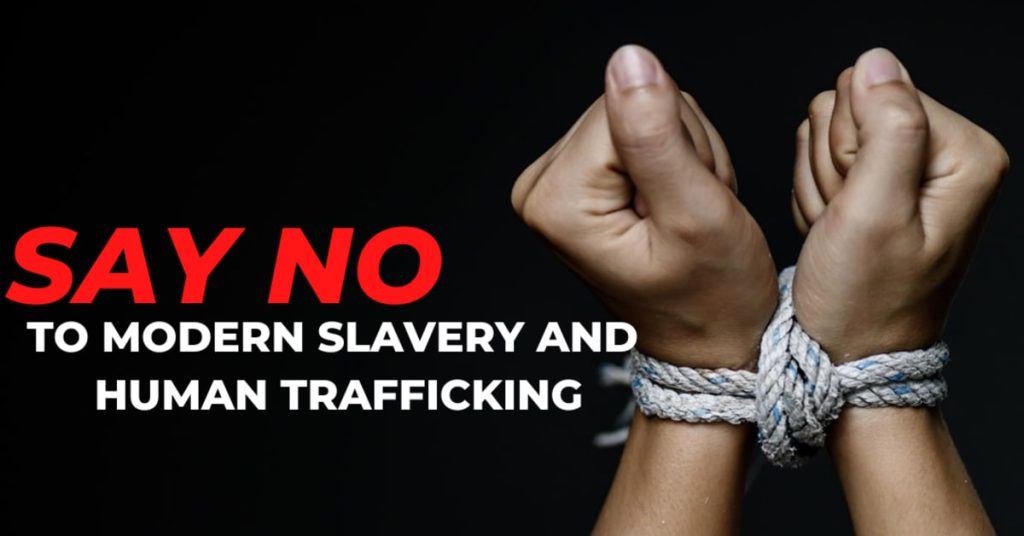Shimbo Pastory
This article was published in The Citizen Newspaper, Tanzania on 1st August 2023.
For ages, human trafficking has been a problem of human societies all over the world. At some point, it was a justified practice, at others a controversial concern, and in our times completely outlawed globally.
Historians establish that the earliest human trafficking voyage was carried out between the years 1500 and 1866, what is referred to as the Transatlantic Slave trade. Over that period of about 350 years, around 12.5 million slaves were shipped from Africa to different parts of the world.
The International Day Against Trafficking in Persons which is marked every 30th July is purposed for raising awareness against trafficking, modern slavery, and advocacy for protection of the victims of trafficking wherever they are around the world. This year the theme is: “Reach every victim of trafficking, leave no one behind.”
Despite the current legislation to ensure that people live in freedom, with their rights rightly accorded to them, and in a safe society, there is still a problem of trafficking.
In terms of figures, it is estimated that approximately 1 million people are trafficked each year around the world. This brings the daily figure of trafficked persons to about 2,740 persons. There are also over 40 million people living as slaves globally, much higher than the entire population of Ghana.
This figure is not negligible, these are actual lives being permanently affected on a daily basis. Most of the victims are children, girls, women, people with disabilities and other vulnerable adults.
Human trafficking happens internationally, across far-apart nations, regionally, across bordering countries, as well as domestically within the respective countries. According to the 2022 Global Report on Trafficking in Persons, published by the United Nations Office on Drugs and Crime (UNODC) traffickers are globally connected.
The report established that based on the cases covered from 2017 through 2021 the UNODC has been able to conduct studies and reproduce patterns and flows of the organized crime of human trafficking across over 140 countries.

Locally, speaking with Advocate Edwin Mugambila, the National Chairman of Tanzania Network Against Human Trafficking (TANAHUT), he said, “Victims who are trafficked locally are involved in domestic work, involuntary forced labour, petty trading in busy and crowded areas – especially in the cities, exploitative begging – using people with disabilities, especially children, and sexual exploitation in brothels and some massage parlours.”
Advocate Mugambila highlights that the problem over the years has been in our laws, in which perpetrators were only leniently punished by fines for trafficking crimes. He clarifies that in October 2021 the parliament of Tanzania partly amended the Trafficking in Persons (TIP) Act.
The Written Laws Miscellaneous Amendments (No.5) Act of 2021 amended the TIP Act to include an offence of ‘Attempt to commit a Trafficking in Persons offence’ under section 8A of the Act.
These amendments have brought about substantial change as punishments given are appropriate for the offences committed. Fines were also increased, and for ‘severe’ cases replaced with jail terms.
It has been established by responsible bodies that Africa is currently the major region of origin for victims of trafficking to the West and the Middle East. The society, especially African society, needs awareness of this matter, and where possible this needs to be infused into the education system.
It is not enough to learn that there was a slave trade in the past, and people were trafficked. In our time no one comes with guns as it was in the past. Traffickers come as nice people, who are known by the victims or their families, enticing them with opportunities and money.
According to the US Department of State, human trafficking is the second most lucrative criminal enterprise globally, generating for perpetrators over USD 150 Billion in profit every year. This reality is not far from our backyards.
Seeking to curb the trafficking enterprise locally, Advocate Mugambila highlighted that TANAHUT works closely with governmental parastatals and over 105 member NGOs to provide capacity building, legal aid, pro bono legal services, social awareness, psychosocial support for victims of trafficking, family tracing, and reintegration.

“At TANAHUT we work with organizations like Tanzania Relief Initiatives (TRI) which trains hundreds of law enforcement officers, police, migration, litigators, legal officers, and social workers.
Lack of specialized awareness regarding human trafficking among law enforcement officers had in the past contributed to making the problem difficult to tackle,” Advocate Mugambila elaborated.
TANAHUT has also done mapping to identify hotspot regions that are source, transit and destinations, and what engagements the victims of trafficking are involved in.
This global war against human trafficking is an invitation for everyone to collaborate with law enforcement facilities to ensure that people’s rights to live and work freely and earn decent wages are not infringed.
It is also a reminder for young people not to be in haste with opportunities to go abroad, to avoid being trapped in the hands of traffickers and enslaved, or even have their organs removed overseas, a new purpose of the heinous trade.
